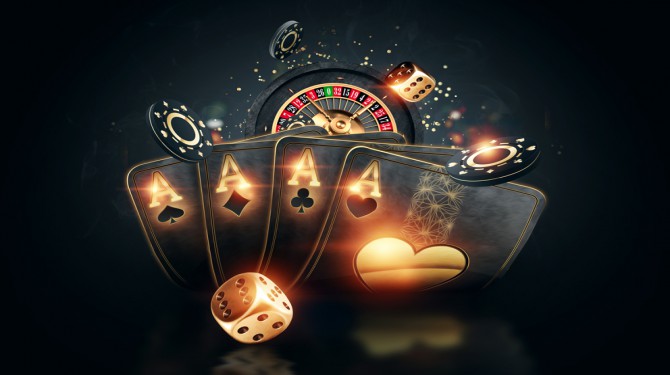Blog Details
- Home
- Blog Details
The History of Poker: From Earliest Origins to How We Know It Today

Similarly to the game itself, the history of poker is full of twists and turns; it's as if poker history reflects the intricacy of the game played passionately around the world.
Depending on what you consider a card game, around 10,000 different games are played with a 52-card deck. And whether you enjoy poker or not, you must admit that it is the absolute king of the card games world.
From its predecessors to the game played in multi-million dollar-worth World Series of Poker tournaments, we will try to uncover the origins of poker and guide you through poker history, coupling everything with actual historical facts and quashing any rumours that surround it.
Who knows, we may even interest you in trying poker if you haven't already (which we seriously doubt!).
When Was Poker Invented?
The history of poker begins in the 1800s, on the Mississippi river boats and New Orleans saloons. Some of the earliest mentions of the game of poker appear in two unconnected publications: one from American gambler and writer Jonathan H. Green, Exposure of the Arts and Miseries of Gambling from 1843, and the other from English comedian Joe Cowell, in his book Thirty Years Passed Among the Players in England and America, published in 1844.
According to them, the earliest versions of the game involved a 20-card deck evenly dealt among four players. At the time, poker featured no draw, and players were making bets on a limited range of combinations. However, throughout the 19th century, poker underwent numerous changes.
It wasn't until the mid-1830s, or more precisely 1834 when the 52-card deck was introduced. One of the reasons gamblers adopted a 52-card deck was to accommodate more players and make sure there were enough cards in the deck for the draw. Also, more cards in the deck allowed for additional combinations, such as flush and, later on, straight.
Little by little, from one Mississippi steamer to another, poker has slowly shaped itself to become one of the most popular games around the world.
Where Did Poker Originate?
The features of the modern game of poker can be traced back to 17th century France and the game called Poque. Both Poque and its equivalent played in Germany, Pochen, was based on the game Primero, played extensively in the 16th century in Spain. According to historical accounts, when playing primero, the players were dealt three cards each, and players bluffed to trick the opponent into thinking the cards in their hands were better than they were.
French colonists then brought Poque to their North American settlements, including New Orleans and the area around it, which became part of the United States of America following the 1803 Louisiana Purchase.
Shortly after, English-speaking settlers anglicised Poque to poker, adopting features of the game as we know it, including dealing five cards to each player and introducing a 52-card deck in the mid-1830s.
Ancient Games That Influenced Poker
There are virtually countless articles on the history of poker, with most of them mentioning a variety of bluffing games. However, not all of those games are genuinely relevant for modern poker.
To put things into perspective, we grouped the games that (potentially) influenced poker according to the number of cards dealt:
Three-Card Games
Among the three-card games that precede modern poker are:
- Belle, Flux & Trente-un, played in France in the 17th and 18th centuries and in Germany under the name Dreisatz;
- Post & Pair, played in England and America throughout the 17th and 18th centuries; later, the game evolved to Brag, which is still played, albeit with different rules, and
- Brelan, popular in France in the 17th and 18th centuries, which later transformed into Bouillotte
Of these games, Bouillotte and Brag seem to bear the most relevance to the emergence of poker.
Four-Card Games
Four-card games that are often described as predecessors of poker are:
- Primiera, invented in the 16th century in Italy and still played today, with its English equivalent Primero
- Gilet, invented in the 16th century
- Mus, Basque game of unknown age, and
- Ambigu, created in 18th century France.
However, recent studies have shown that none of these games has much to do with the origins of poker.
Five-Card Games
Finally, here's the game that seems the most likely antecedent of modern poker:
- German Pochen or Pochspiel is a game with origins in the 15th-century game Bocken. Bocken was popular in France, too, under the name Glic and later as Poque.
Of all the European games listed above, Poque is the one most obviously responsible for the occurrence of poker.
Why Is It Called Poker?
One would think that the name 'poker' has something to do with bluffing, as the concept of bluffing is, essentially, what sets the game apart from other card games.
However, the name of the game that bears the most obvious resemblance to poker, to the extent that it lent the name to the modern game, Pochen, means to hit, to strike, or to knock on the table; its secondary meaning is to 'play', 'bet', or 'raise'. Therefore, Pochen is a game of hitting or betting.
When Was Texas Hold'Em Invented?
The world's most popular version of poker, Texas Hold'Em, was invented sometime around 1925 in a small town called Robstown, just outside Corpus Christi. We don't know the exact year, but we do know that both poker history and the Texas state legislature recognise Robstown as the birthplace of Texas Hold'Em.
No wonder so many poker legends hail from Texas! You can check them all out in our blog post about famous poker players.
It took a while for Texans to sell the idea to Las Vegas. It wasn't until 1967 when Crandell Addington convinced The Golden Nugget to introduce the game; by 1969, the new game was on offer at the Dunes Casino, located on the Las Vegas Strip, boosting the visibility of the new poker variant thanks to its prominent location.
From thereon, the history of poker wrote itself: new poker terms were slowly introduced, giving birth to the game's most significant event.
How Did Texas Hold'Em Become so Popular?
Texas Hold'Em owes its immense popularity to its biggest tournament: The World Series Of Poker.
The World Series of Poker history began in 1969 when Holiday Hotel owner and a Texan Tom Moore founded the Gambling Fraternity Convention, an annual get-together of gamblers that hosted a poker tournament. Among other games, the Gambling Fraternity Convention offered Texas Hold 'em. However, the tournament at Holiday Hotel in Reno wasn't a success. Following a little known string of events, Benny Binion, gambling icon and career criminal, moved the event to his Horseshoe Casino in Las Vegas.
Binion immediately changed the contest title to the World Series of Poker, which was also the name under which the inaugural edition was held. After the first year of the World Series of Poker, journalist Tom Thackery proposed that the main event should be No-Limit Texas Hold'Em.
Since then, the No-Limit Texas Hold'Em has been the tournament's main event. The rest is history: the WSOP had quickly exploded in popularity through live TV, with the number of entrants increasing from dozens to hundreds of players who apply for the tournament nowadays.
If you're the rule of poker, we suggest you pore over our blog post on how to play poker and use it as a starting point for mastering the skill of Texas Hold'Em.
The History of Online Poker
Before poker officially came online, there were a bunch of shady, illegal places offering the game. However, it wasn't until 1 January 1998 when a website legally offered real money poker. planetpoker.com was the first website to have such an offering, and they had an excellent run for several years until other poker sites took over.
partypoker.com quickly became the #1 online poker site, followed closely in popularity by PokerStars, and other well-known names; today, PokerStars is undoubtedly the most visited poker site in the world.
The history of online gambling teaches us that online poker evolved quickly. With the emergence of live poker rooms hosted by major iGaming developers, players can now engage in an online game of poker whenever they please, with live dealers on hand 24/7.
Poker as We Know It Today
As you can see, poker has come a long way: from one iteration to another, across several European countries, until it reached New Orleans and finally Texas, where it has taken its final form.
Nowadays, poker is enjoyed by millions of people worldwide, with casinos devoting entire floors to poker rooms and online casinos springing up every day, offering non-stop poker entertainment.
We hope we succeeded in clearing some (or all) doubts you might have had about poker, including its origins and how it gained the status it has today.
